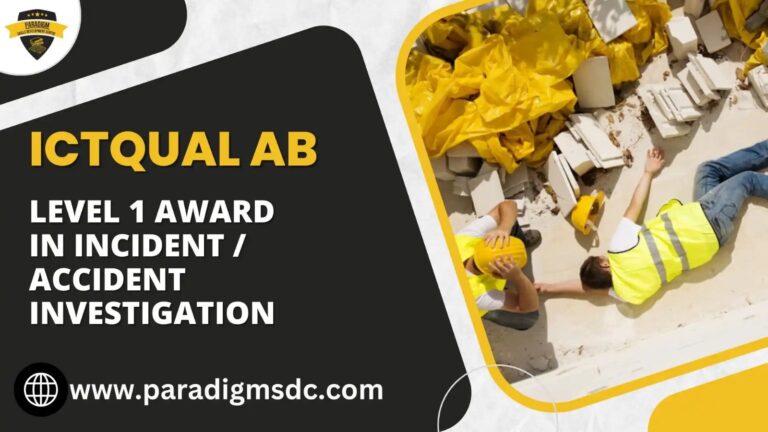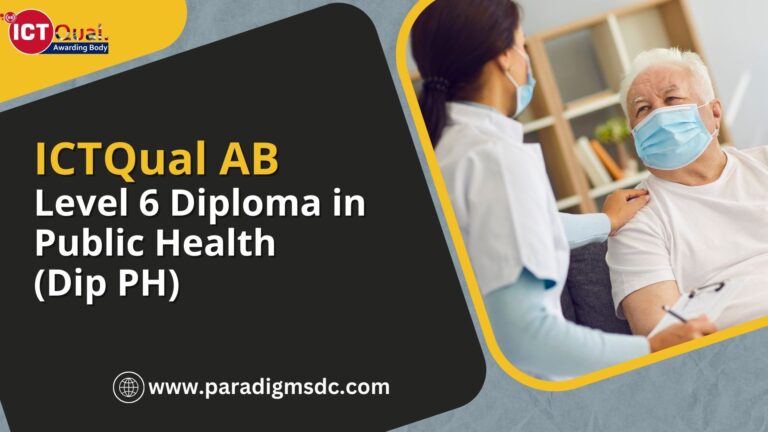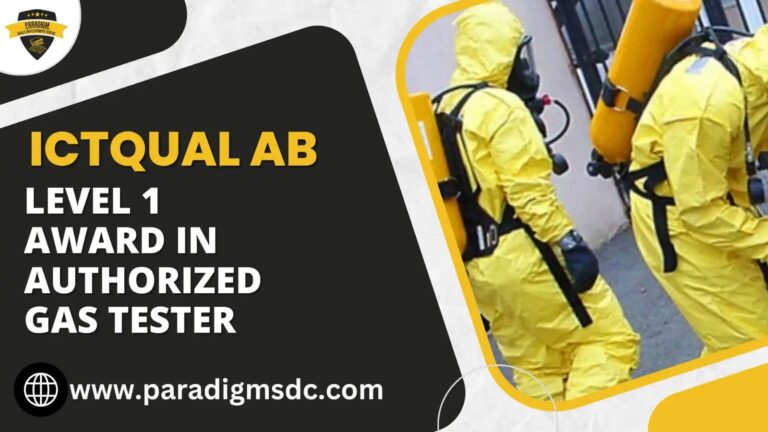Course Introduction
The ICTQual Level 4 Diploma for Associate Ambulance Practitioners is a prestigious qualification tailored for professionals who wish to elevate their expertise and responsibilities within ambulance services. This diploma is designed to equip practitioners with advanced skills and knowledge required for more complex and specialized roles in the ambulance sector. It represents a significant step up from entry-level qualifications and is ideal for those aiming to advance their careers in pre-hospital and emergency care.
Course Overview
This diploma provides a comprehensive education in advanced ambulance care, focusing on the development of critical thinking, complex decision-making, and enhanced clinical skills. The course is structured to offer a blend of theoretical knowledge and practical experience, ensuring that learners are well-prepared to handle the demands of higher-level ambulance roles.
The curriculum covers a wide range of topics, including advanced patient assessment, emergency care techniques, and leadership within ambulance services. It is designed to support the transition from a standard ambulance practitioner role to more specialized and senior positions.
Course Study Units
- Emergency Care Principles
- Trauma Management
- Medical Emergencies
- Communication and Professionalism
Learning Outcomes
Upon successful completion of the ICTQual Level 4 Diploma for Associate Ambulance Practitioners, learners will be able to:
Emergency Care Principles
- Understanding of EMS: Gain a comprehensive understanding of the role and function of Emergency Medical Services (EMS) in providing pre-hospital care, including the principles of scene safety, triage, and rapid assessment.
- Patient Assessment Skills: Develop proficiency in systematic patient assessment techniques, including primary and secondary surveys, vital signs assessment, and obtaining relevant medical history to prioritize care effectively.
- Airway Management and Breathing Support: Acquire the skills necessary to establish and maintain a patient’s airway, administer oxygen therapy, and provide assistance with breathing in various emergency scenarios.
- Cardiac and Circulatory Emergencies: Demonstrate competency in recognizing and managing cardiac emergencies, performing CPR, utilizing automated external defibrillators (AEDs), and initiating interventions for heart-related conditions.
- Neurological and Environmental Emergencies: Identify and respond to neurological emergencies such as strokes and seizures, as well as environmental emergencies including heat-related illnesses and poisoning, with appropriate interventions.
2. Trauma Management
- Trauma Assessment and Triage: Develop the ability to rapidly assess trauma patients, identify life-threatening injuries, and prioritize care based on severity and urgency.
- Bleeding Control and Shock Management: Acquire skills in controlling hemorrhage, applying pressure dressings, and managing shock effectively to stabilize trauma patients and prevent further deterioration.
- Spinal Immobilization and Musculoskeletal Injuries: Demonstrate proficiency in spinal immobilization techniques and initial management of musculoskeletal injuries to prevent secondary injury and ensure patient safety.
- Head and Neck Injury Management: Understand the assessment and management of head and neck injuries, including the recognition of traumatic brain injuries, concussions, and cervical spine precautions.
3. Medical Emergencies
- Cardiac and Respiratory Emergencies: Identify and manage cardiac conditions such as myocardial infarction and dysrhythmias, as well as respiratory emergencies including asthma exacerbations and pulmonary embolism, with appropriate interventions.
- Diabetic Emergencies: Recognize and respond to diabetic emergencies such as hypoglycemia, hyperglycemia, and diabetic ketoacidosis, with prompt treatment and monitoring.
- Allergic Reactions and Neurological Emergencies: Demonstrate competency in managing allergic reactions and anaphylaxis, as well as neurological emergencies such as seizures and strokes, with timely interventions and supportive care.
4. Communication and Professionalism
- Effective Communication Skills: Develop effective communication skills to interact professionally with patients, families, colleagues, and other healthcare professionals in various settings.
- Professionalism and Ethics: Understand the importance of professionalism, ethical practice, and patient confidentiality in emergency medical care, adhering to legal and ethical standards at all times.
- Cultural Competence and Diversity: Recognize and respect cultural differences and diverse patient populations, delivering culturally sensitive care and addressing individual needs with compassion and empathy.
- Stress Management and Interdisciplinary Collaboration: Employ strategies for stress management, self-care, and resilience in high-pressure environments, while fostering teamwork and collaboration within multidisciplinary healthcare teams to optimize patient outcomes.
Course Benefits
- Enhanced Clinical Skills: Gain advanced skills and knowledge essential for handling complex patient cases and emergencies.
- Career Advancement: Open doors to higher-level positions and specialized roles within ambulance services.
- Leadership Development: Acquire leadership and management skills relevant to senior roles in emergency care.
- Quality and Safety Improvement: Contribute to enhancing service quality and patient safety in ambulance settings.
- Professional Growth: Engage with cutting-edge research and practices, positioning yourself as a leader in the field.
Who is This Course For?
The ICTQual Level 4 Diploma for Associate Ambulance Practitioners is aimed at:
- Experienced ambulance practitioners seeking to advance their career to higher-level roles.
- Current professionals in the ambulance sector aiming to specialize or take on leadership positions.
- Individuals looking to enhance their clinical skills and knowledge in advanced emergency care.
- Those interested in contributing to quality improvement and research within ambulance services.
Future Progression
Completing this diploma offers several pathways for further development:
- Advanced Qualifications: Pursue higher-level qualifications, such as the ICTQual Level 5 Diploma in Paramedic Science or Advanced Clinical Practice.
- Specialized Roles: Move into specialized roles within ambulance services, such as advanced paramedic or clinical team leader.
- Leadership Positions: Consider further training in healthcare management or leadership to take on senior roles within emergency services.
The ICTQual Level 4 Diploma for Associate Ambulance Practitioners provides a robust foundation for those seeking to excel in advanced ambulance care roles. It not only enhances your professional skills but also positions you for significant career growth and leadership opportunities in the dynamic field of emergency services.







